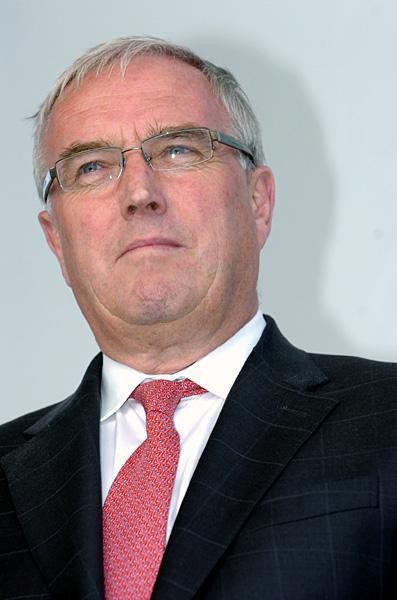McQuaid clarifies on re-testing samples
By Shane Stokes UCI president Pat McQuaid drew a storm of criticism earlier this week when he seemed...

By Shane Stokes
UCI president Pat McQuaid drew a storm of criticism earlier this week when he seemed to indicate that he was against re-testing rider's doping control samples with newly developed tests. Cyclingnews sought clarification from McQuaid, who stated that the UCI does not oppose retesting if the circumstances are right.
"What I was asked is if the UCI are now going to test all of the samples of the Vuelta, all of the samples of the Giro, and all the samples of the 2007 Tour de France, because the AFLD retroactively tested samples from this year and found CERA there?" he said. "My answer was no to that.
"In principle, the UCI supports the idea of retroactive testing, and we always have done that. But it has got to be based on good information, either on suspicion in terms of [sudden] excellent performances, on information that would for example come from the biological passport, or information that will come from people in the field in relation to a particular individual. Then we would both target that individual, and also we would do some retroactive testing of samples which we might have."
McQuaid said that such retesting would require samples to be in good condition, and also to provide for a 'B' sample. He said that any testing undertaken for research purposes was off limits, due to the different handling involved. "If the sample was taken for research purposes, then you cannot test because the chain of custody and the protocol is completely different for the two types of samples. Therefore you can't use that to look into an anti-doping rule violation. All of this is quite complicated, and it is not something that you can just decide to take a blanket decision on."
Further explaining his previous comments, he stated that it would be counterproductive to retest the samples from races each time a new product comes on the market. "The reason I said it would make a mockery of the sport is that if a new product comes on the market, and because of that you decide to do all the tests you did last year and the year before. If you find some positives you are suddenly going back to the organiser and telling them that they better re-jig their podium.
"At some point in time you have got to take a pragmatic decision. That is why the UCI's view is that we want to look forward, we want to progress. The scientists that are working on the biological passport tell me that this is the way forward and this will greatly assist us in the fight against doping. That is more important than retesting all of the samples of last year's Tour de France for a product which, to the best of my knowledge and going by all the information we have on the field, wasn't even available last year."
The latest race content, interviews, features, reviews and expert buying guides, direct to your inbox!
Many will however argue that the samples from this year's Giro d'Italia should be re-examined for CERA. Two of the strongest riders in the race, Riccardo Riccò and Emanuele Sella, both subsequently tested positive for the substance and there is a strong suspicion that they – and quite possibly others - may have used it in the Italian Tour.
